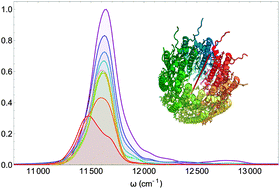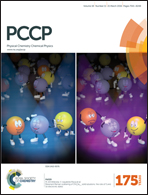Polaronic effects at finite temperatures in the B850 ring of the LH2 complex
Abstract
Energy transfer and relaxation dynamics in the B850 ring of LH2 molecular aggregates are described, taking into account the polaronic effects, by a stochastic time-dependent variational approach. We explicitly include the finite temperature effects in the model by sampling the initial conditions of the vibrational states randomly. This is in contrast to previous applications of the variational approach, which consider only the zero-temperature case. The method allows us to obtain both the microscopic dynamics at the single-wavefunction level and the thermally averaged picture of excitation relaxation over a wide range of temperatures. Spectroscopic observables such as temperature dependent absorption and time-resolved fluorescence spectra are calculated. Microscopic wavefunction evolution is quantified by introducing the exciton participation (localization) length and the exciton coherence length. Their asymptotic temperature dependence demonstrates that the environmental polaronic effects range from exciton self-trapping and excitonic polaron formation at low temperatures to thermally induced state delocalization and decoherence at high temperatures. While the transition towards the polaronic state can be observed on the wavefunction level, it does not produce a discernible effect on the calculated spectroscopic observables.


 Please wait while we load your content...
Please wait while we load your content...